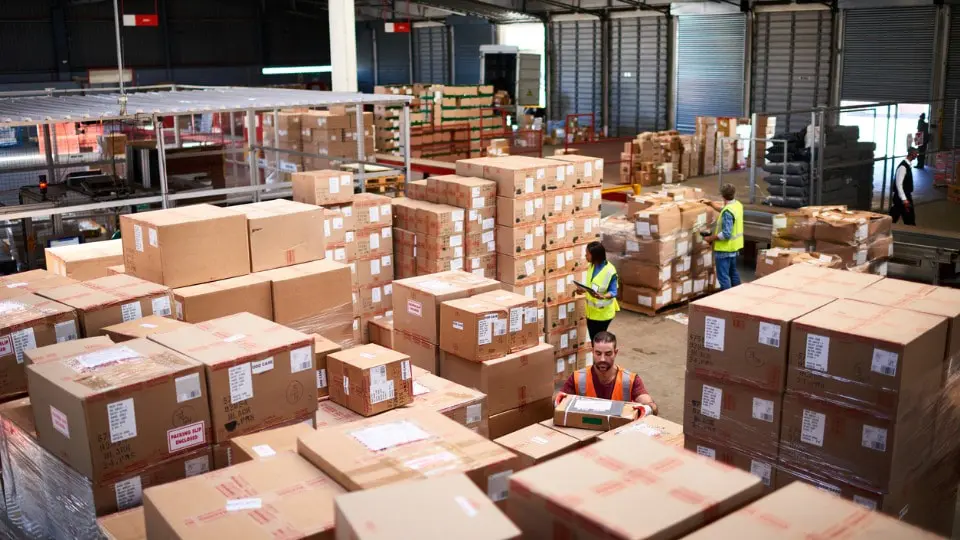Germany’s strategic location in Europe and its thriving industrial sector make it a hub for warehouse operations. With a robust logistics and supply chain industry, warehouses play a crucial role in the economy. For those considering a career in this field, understanding the nature of warehouse work, job opportunities, and benefits is essential. This article provides an overview of working in warehouses in Germany, offering insights into job roles, work environment, and career prospects.
1. Key Warehouse Job Roles
Warehouse Operative
Warehouse operatives are at the heart of warehouse operations. Their responsibilities include picking and packing goods, managing inventory, and ensuring that products are stored correctly. This role requires attention to detail and the ability to work efficiently in a fast-paced environment. Warehouse operatives often use various equipment, such as forklifts and pallet jacks, to handle goods.
Inventory Clerk
Inventory clerks are responsible for tracking stock levels, managing inventory records, and conducting regular audits to ensure accuracy. This role involves working with inventory management systems and may require data entry and reporting. Attention to detail and organizational skills are crucial for maintaining accurate inventory records.
Warehouse Manager
Warehouse managers oversee the daily operations of the warehouse. Their duties include managing staff, coordinating shipments, and ensuring compliance with safety regulations. They also handle scheduling, inventory management, and process optimization. Strong leadership and organizational skills are essential for this role.
Logistics Coordinator
Logistics coordinators manage the movement of goods between the warehouse and distribution centers or customers. They coordinate transportation, track shipments, and ensure timely delivery. This role involves working closely with suppliers, transport companies, and warehouse staff to streamline logistics operations.
2. Work Environment and Conditions
Fast-Paced and Physically Demanding
Working in a warehouse can be physically demanding. Employees are often on their feet for long periods, lifting and moving heavy items. The environment can be fast-paced, especially during peak times, such as holiday seasons or large promotional events. However, many warehouses are equipped with modern technology and equipment to aid in physical tasks and improve efficiency.
Health and Safety Standards
Health and safety are top priorities in warehouse environments. Employers are required to adhere to strict safety regulations to protect employees. This includes providing proper training on equipment use, implementing safety protocols, and ensuring the workspace is clean and organized. Personal protective equipment (PPE) such as gloves and safety shoes may also be required.
3. Employee Benefits and Compensation
Competitive Salaries
Salaries for warehouse workers in Germany vary based on role, experience, and location. Generally, warehouse operatives can expect to earn between €25,000 and €35,000 per year, with potential for increases based on experience and additional responsibilities. Specialized roles, such as warehouse managers and logistics coordinators, typically command higher salaries, ranging from €40,000 to €60,000 annually.
Additional Benefits
In addition to competitive salaries, many warehouse jobs offer additional benefits, including:
- Health Insurance: Comprehensive health coverage for employees and their families.
- Pension Plans: Retirement savings plans to help employees plan for their future.
- Paid Leave: Vacation days and sick leave to support work-life balance.
- Employee Discounts: Discounts on products or services, where applicable.
4. Career Development and Growth
Training and Development
Many warehouses offer training programs to help employees develop their skills and advance their careers. This can include on-the-job training, certification programs, and opportunities to learn new technologies or equipment. Employees who show dedication and skill may have the chance to progress into supervisory or managerial roles.
Career Progression
Career progression in the warehouse sector often involves moving into roles with greater responsibility. For instance, experienced warehouse operatives may advance to supervisory positions or become inventory clerks. Warehouse managers may also find opportunities to move into higher-level logistics or supply chain management roles.
5. Tips for a Successful Warehouse Career
Stay Physically Fit
Given the physical demands of warehouse work, maintaining good physical health is important. Regular exercise and a healthy lifestyle can help you stay fit and perform well on the job.
Embrace Technology
Warehouse operations increasingly rely on technology, such as automated systems and inventory management software. Familiarizing yourself with these technologies can enhance your efficiency and open up opportunities for career advancement.
Focus on Safety
Prioritizing safety is crucial in warehouse environments. Always follow safety protocols, use equipment properly, and report any hazards or concerns to your supervisor.
Working in warehouses in Germany offers a dynamic and essential role within the logistics and supply chain industry. With a variety of job roles, competitive salaries, and opportunities for career growth, the warehouse sector provides a solid foundation for a successful career. By understanding the nature of warehouse work, the work environment, and the benefits available, you can make informed decisions and thrive in this vital industry.
